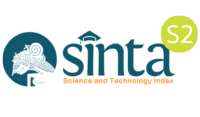EVALUATION OF WORK-RELATED TRAINING BY THE MINISTRY OF RELIGIOUS AFFAIRS AND ITS EFFECTS ON EDUCATORS' AND EDUCATIONAL PERSONNEL'S COMPETENCE
DOI:
https://doi.org/10.31330/penamas.v36i1.653Keywords:
Effectiveness, Competence, Training in the Work AreaAbstract
The vast territory of Indonesia and the large number of employees of the Ministry of Religion who need competency improvement has an impact on the inability of the Religious Education and Training Center to provide training. Pelatihan di Wilayah Kerja (PDWK) s a solution to overcome these obstacles. This study aims to look at the process of implementing PDWK, the level of effectiveness, and its influence on the competency level of its alumni. The research method used is a combination of descriptive qualitative and quantitative data. The research was conducted in 10 Religious Training Centers, namely BDK DKI, BDK Bandung, BDK Semarang, BDK Surabaya, BDK Denpasar, BDK Makassar, BDK Manado, BDK Banjarmasin, BDK Medan, and BDK Palembang. The research results show that PDWK training has been running effectively, with improvements in several aspects. In addition, the results of this training show that the competence of alumni has increased after attending the training, the calculation results obtained a coefficient of determination = 0.521, which means that 52.1% of the competence of alumni is influenced by the effectiveness of the training and 47.9% due to other factors
References
Alonazi, W., & Bakry, E. S. (2019). Organizational commitment and its benefits in the health care industry. Journal of Health Management, 21(4), 506–513. https://doi.org/DOI: 10.1177/0972063419861913
Amaluis, D. (2015). Analysis of the Relationship of the Training Program (Diklatpim) to Increase the Quality of Leadership (Leadership) of Civil Servants in the Office of the Local Government District of Agam. Journal of Economic and Economic Education Vol, 3(2), 161–168.
Basuki, B. (2022). Penerapan Kompetensi dan Peningkatan Kinerja Hasil Pelatihan Di Wilayah Kerja (PDWK) Pembelajaran Tematik Guru Madrasah Ibtidaiyah Kantor Kementerian Agama Kota Prabumulih dan Kabupaten Muara Enim. Jurnal Perspektif, 15(2), 158–172.
Campbell, D. A., & Lambright, K. T. (2016). Program performance and multiple constituency theory. Nonprofit and Voluntary Sector Quarterly, 45(1), 150–171.
Crane, A. (2013). Modern slavery as a management practice: Exploring the conditions and capabilities for human exploitation. Academy of Management Review, 38(1), 49–69.
Hayati, N., & Syafrida, E. (2020). Influencing Factors to the Family Welfare in Mulyasejati Village Torwards Citarum Harum. KnE Social Sciences, 2020, 194–205–194–205. https://doi.org/10.18502/KSS.V4I14.7873
Hayati, N., & Yulianto, E. (2021). Efektivitas Pelatihan Dalam Meningkatkan Kompetensi Sumber Daya Manusia. Journal Civics and Social Studies, 5(1), 98–115.
Haywood, K. M. (1992). Effective training: Toward a strategic approach. Cornell Hotel and Restaurant Administration Quarterly, 33(6), 43–52.
Jaya, D. P., Aprianto, S., & Prihatin, S. (2020). Study on Optimization of Law Number 23 of 2011 concerning Management of Zakat in Bengkulu City in Giving Productive Zakat. Jurnal Hukum Sehasen, 6(1), 1–6.
Johnes, J., Portela, M., & Thanassoulis, E. (2017). Efficiency in education. In Journal of the Operational Research Society (Vol. 68, Issue 4, pp. 331–338). Taylor & Francis.
Megalia, R. (2011). Manajemen Peningkatan Kompetensi Aparatur: Studi tentang Implementasi Kebijakan Reformasi Sumber Daya Manusia pada Badan Pendidikan dan Pelatihan di Indonesia. SOSIOHUMANIKA, 4(2).
Parjaman, T., Soedarmo, U. R., & Enas, E. (2019). Penguatan Kapasitas Aparatur Untuk Meningkatkan Daya Saing Daerah Di Era Global. Journal of Management Review, 3(3), 29–42.
Prasetyo, M. A. M., & Salabi, A. S. (2021). Model Evaluasi dan Instrumen Program Pendidikan Pelatihan di Lembaga Pendidikan Islam. Idarah (Jurnal Pendidikan Dan Kependidikan), 5(1), 101–117.
Rahmatullah, A. S., Mulyasa, E., Syahrani, S., Pongpalilu, F., & Putri, R. E. (2022). Digital era 4.0: The contribution to education and student psychology. Linguistics and Culture Review, 6, 89–107.
Rochaendi, E., Wahyudi, A., Arifin, A. S., & Salim, A. (2021). Penerapan Model Kirkpatrick Dalam Mengevaluasi Pelaksanaan Diklat Penguatan Kepala Sekolah Melalui Daring Dari Perspektif Pengajar. LITERASI (Jurnal Ilmu Pendidikan), 12(2), 59–76.
Sareen, D. (2018). Relationship between strategic human resource management and job satisfaction. International Journal of Current Research in Life Sciences, 7(03), 1229–1233.
Sharma, A., & Singh, B. J. (2020). Evolution of industrial revolutions: A review. International Journal of Innovative Technology and Exploring Engineering, 9(11), 66–73.
Sima, V., Gheorghe, I. G., Subić, J., & Nancu, D. (2020). Influences of the industry 4.0 revolution on the human capital development and consumer behavior: A systematic review. Sustainability, 12(10), 4035.
Spencer, J. P., Thomas, M. S. C., & McClelland, J. L. (2009). Toward a unified theory of development. JP Spencer, MSC Thomas, & JL McClelland (Eds.), 86–118.
Sugiyono. (2016). Metode penelitian pendidikan pendekatan kuantitatif, kualitatif dan R&D. Alfabeta, Bandung.
Utami, N., & Yulianto, H. D. (2019). Significant influence of information technology on the use of modern accounting software. IOP Conference Series: Materials Science and Engineering, 662(2), 2003.
Wan, J., Tang, S., Shu, Z., Li, D., Wang, S., Imran, M., & Vasilakos, A. V. (2016). Software-defined industrial internet of things in the context of industry 4.0. IEEE Sensors Journal, 16(20), 7373–7380.
Widyastuti, N. D. A., Hasyim, F.-, & Suharmanto, S.-. (2020). The influence of Work Environment, Job Satisfaction, and Organizational Commitment on Employee Performance at PT Sun Star Motor Branch MT Haryono Semarang. JOBS (Jurnal Of Business Studies), 6(2), 177. https://doi.org/10.32497/jobs.v6i2.2543
Wilton, N. (2019). An introduction to human resource management. An Introduction to Human Resource Management, 1–632.
Downloads
Published
Issue
Section
License
Copyright (c) 2023 Balai Penelitian dan Pengembangan Agama Jakarta Indonesia

This work is licensed under a Creative Commons Attribution-NonCommercial-NoDerivatives 4.0 International License.









